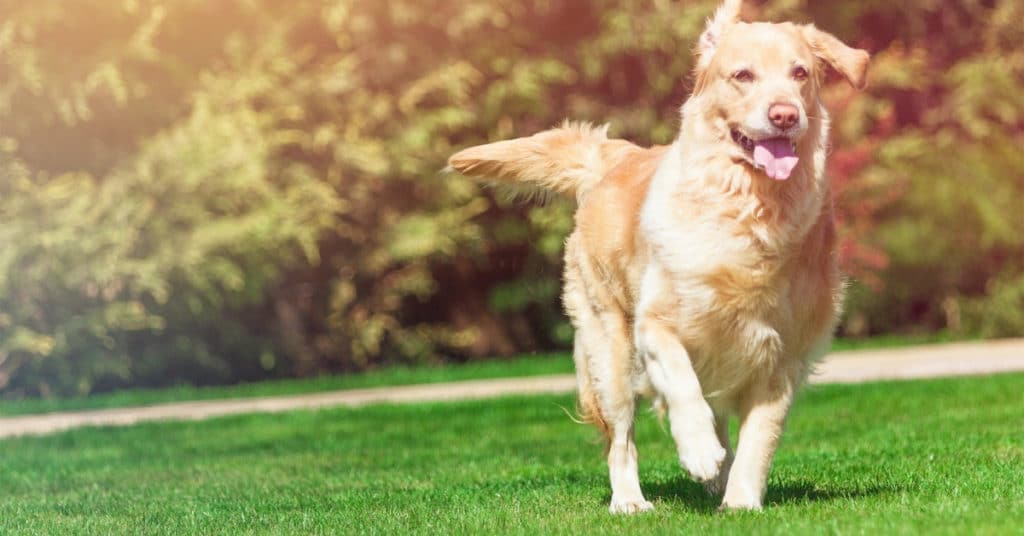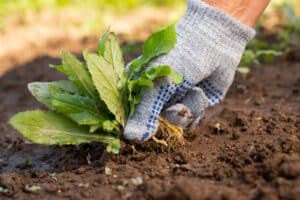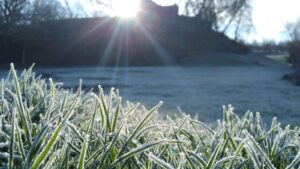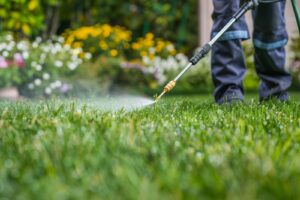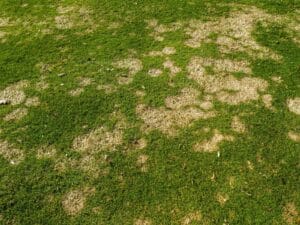No need to compromise your lawn for your dog. It’s true, dog’s can easily damage your lawn, but with some regular care and proper training you can keep your dog around while having a high quality lawn. Don’t let your K9 ruin your dreams of having a lush green lawn. Training your dog to do their business in a specific area, cleaning up after them, and training them to not dig up your lawn will help you to keep a handle on things.
Train Your Dog
All dogs will treat grass differently. The first step is to train your dog. Train your dog to do their business in the same area—then you can treat and flush out that area and limit the damage to the rest of your lawn. You can also have the designated patch be gravel or sod, as it will not be as affected as grass. Do not allow your dog to dig up part of your lawn.
Your dog and your grass will also be impacted by the type of dog food you’re using. Certain dog foods will cause your dog to need more water and urinate more often, which will be damaging to your grass. A well hydrated dog will urinate at a healthy rate and be less harmful to your lawn.
Practicing Proper Care
The best way to keep your lawn in good condition is to practice regular maintenance. Be sure to spray down any spots where your dog spends their time. The sooner that you clear away and potential damage that your dog has done to your lawn, the less of a hit your lawn will take. Wash your lawn down with water in any trouble areas as soon as possible. You can also keep your grass mowed high to hide any discoloration in your lawn. Lawn fertilizer is also a great way to promote healthy growth (or regrowth) where needed. You should be fertilizing three to four times a year. When fertilizing, keep your dog off until your lawn has fully recovered from its vulnerable state.
Cleaning Up the Mess
To keep your lawn healthy, it is important to water the areas that have been urinated on as soon as possible, limiting potential damage. The nitrogen and salts from urine can be very damaging to grass. When it’s diluted with water, it will be less damaging. While feces are not as harmful to your grass, they can still do damage. They are essentially bad for appearance and functionality purposes. Keep an eye on your dog and where they spend their time to avoid missing anything left behind and take care of it as soon as possible.
Some areas may be damaged enough that they need to be reseeded or replanted. If this is the case, you’ll need to flush the area with a generous amount of water, then dig up any dead grass, and reseed or use a piece of sod for instant results.


